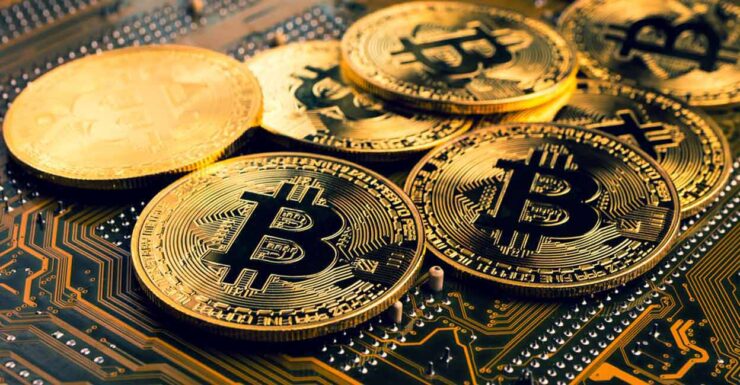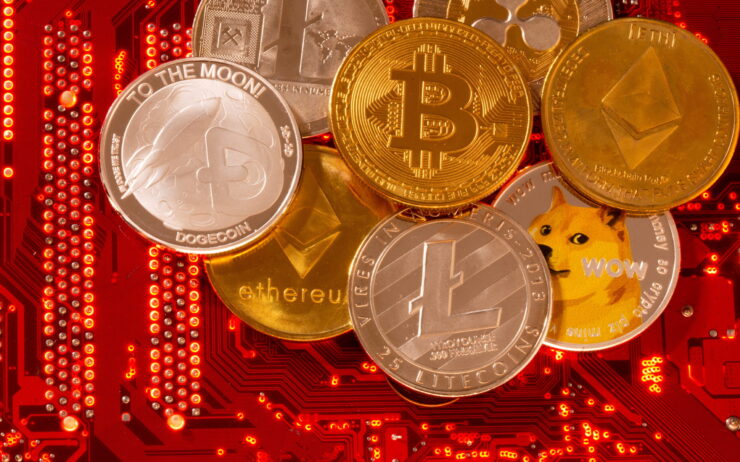Government finds itself on the horns of a dilemma on crypto currency front
By Kumud Das
The government finds itself in a catch-22 situation over the influx of crypto currencies. Neither can it legally allow the digital gold to be used for transactions in the country, nor can it put a blanket ban on the virtual currency.
In fact, it was for the second time that the government could not table the Bill on crypto currency regulation on the floor of Parliament during the Winter session though it was scheduled on the Parliament’s agenda. The Bill had been deferred during the Budget session of Parliament on February 01, 2021 too. The reason is clear.
The government is not yet clear in its mind on how to regulate the virtual currency. But, at the same time, it is unable to regulate the influx of investments into the ‘digital gold’ as Indians within the country and even Indian diaspora living abroad have taken a fancy for the virtual currency. Huge investments have been made by them into the currency, though it is yet to become a legal tender in the country.
As per an estimate, there are nearly 20 million crypto investors, but there is no clarity on the size of the Indian crypto market. Thus, a blanket ban is set to shake up the entire crypto ecosystem and affect millions who have put in their hard-earned money into various crypto trading exchanges.

The third and the foremost reason being the non-fungible tokens (NFTs) which have become a craze investment for the celebrities. These NFTs are mostly traded in crypto currencies.
Commenting on it, former Finance Secretary Subhash Chandra Garg, who had headed the inter-ministerial committee (IMC) that drafted the crypto currency bill titled as ‘Banning of Cryptocurrency and Regulation of Official Digital Currency Bill, 2019’, has said that the government has been buffeted by two forces in this matter. First, the Reserve Bank of India (RBI) has been constantly pressuring the government to ban crypto-currencies and statutorily empower RBI to issue digital bank-notes.
The crypto-currency exchanges, applying the force from the other side, want the government to treat crypto-currencies as assets and statutorily create a regulatory mechanism for the same, he added.
According to Garg, “Whether misused for hawala and money laundering, investments worth billions of dollars escaping abroad and capital gains tax being avoided by the trade exchanges as well as investors continue to be deeper challenges before the government before it gives a go ahead for the same.”
Keeping this in view, the experts believe that time is ripe for the government and the RBI as well to expedite the process of introducing central bank digital currency (CBDC) to curb the massive use of virtual currencies whose circulation, though illegal, has gone through the roof now. This step will go a long way in stalemating the cash in circulation (CIC) too, which has surged to a record Rs 29.4 lakh crore as on October 29. As a percentage of gross domestic product (GDP), it rose to a record 14.5 per cent for the fiscal 2020-21. The surge comes despite increased penetration of digital payments. It goes against the basic premises on which demonetisation was imposed five years ago.

For starters, the demonetisation was imposed five years ago to kill two birds with one arrow. First, it was aimed at inculcating a habit among the common man to prefer digital currency to cash. Secondly, it was a kind of crusade against the hoarding of black money.
Yes, transparency as an outcome of demonetisation in use of currency did check black money to a certain extent. But, when it comes to use of CIC vs. digital payments, it continues to be a debate if we really achieved our goal.
While almost 100 per cent of cash came back to the system post-demonetisation, CIC has seen a surge since then. This despite the fact that digital payments have also touched a historic height.
As a percentage of gross domestic product (GDP), CIC rose to a record 14.5 per cent for the fiscal 2020-21. The surge comes despite increased penetration of digital payments.
However, an internal report by Ecowrap says that latest currency in circulation has remained constant over the previous year even as record purchases happened during Diwali at Rs 1.25 lakh crores. This happened for the first time since 2014.
Rather, it expresses satisfaction over the fact that Indian consumers have now migrated big time to better technology platform like UPI, which has jumped 70 times in last 4 years, that does not require the intervention of a POS machine and factor authentications.
 Secondly, the government is currently busy in framing the necessary guidelines for the proposed rolling out of central bank digital currency (CBDC) in its bid to wage war against the virtual currency, which is being operated from foreign soil at the moment. Virtual currencies are like the cat out of the bag as the RBI doesn’t have any direct control over these virtual currencies and hence it has been raising its concern over such currencies from time to time. Former RBI deputy governor, NS Vishwanathan has raised a voice of concern against these currencies of late.
Secondly, the government is currently busy in framing the necessary guidelines for the proposed rolling out of central bank digital currency (CBDC) in its bid to wage war against the virtual currency, which is being operated from foreign soil at the moment. Virtual currencies are like the cat out of the bag as the RBI doesn’t have any direct control over these virtual currencies and hence it has been raising its concern over such currencies from time to time. Former RBI deputy governor, NS Vishwanathan has raised a voice of concern against these currencies of late.
High volatility of crypto currency is just another challenge the law of the land is currently struggling with. A high-priced crypto, Ethereum, fluctuated between Rs 30,000 and Rs 3.69 lakh during the year preceding November 5, 2021. Today, Ethereum, bought at its lowest price of the year, fetches 90 per cent return. In comparison to Bitcoin and Ethereum, Polygon Matic is selling (November 5) at a very low price of around Rs 155. However, its price fluctuation (between 91 paise and Rs 215) over the past one year is very high – around 200 per cent.
The one cent-priced Squid skyrocketed and then tanked, but the story of another low-priced crypto, Shiba Inu, is different. Though selling at even less than a paisa – 0.0039 paisa to be precise, Shiba is going strong. During the last week, Shiba’s price doubled and its market value soared to more than $51 billion last week, putting it among the top 10 crypto currencies.
Crypto market is quite small as compared to the market of traditional currencies. It is easy for speculators to trigger price volatility in certain cryptos. Let us have a look at some of the causes of price volatility in crypto currencies worldwide.
 Whales are the small groups of people holding large amounts of cryptos. They can influence the crypto trade. They may crash the price of a certain crypto by suddenly selling it in large numbers. The price crash, if it happens to be in a strong crypto like Bitcoin, may have a ripple crash effect for the entire market.
Whales are the small groups of people holding large amounts of cryptos. They can influence the crypto trade. They may crash the price of a certain crypto by suddenly selling it in large numbers. The price crash, if it happens to be in a strong crypto like Bitcoin, may have a ripple crash effect for the entire market.
Surprisingly, all crypto currencies have a finite supply. Their supply speed is uncertain and not controllable by anyone. In the case of Bitcoins, only 11 million coins can be mined. So, with the expansion of the crypto market, if the Bitcoin demand rises, then the coin price is bound to skyrocket. The crypto market attracts a large number of part-timers who want to make quick money. Since all part-timers are not able to make money, the market sees frequent entry and exit of part-timers, leading to price volatility.
Fiat money or fiat currency represents legal-tender paper money or coins, which are issued and backed by a government. However, crypto currencies are pure digital assets, with no government backing or backing of a commodity such as gold. Devoid of any stabilising government or commodity control, the price of crypto currency is determined entirely by the laws of supply-demand. Any factor affecting their supply-demand may lead to a wide fluctuation in their price.
Some crypto promoters also destroy a part of their coin supply, using the burning mechanism. This creates scarcity of the coin and thus raising its demand and value.
The high price volatility has already been a concern regarding the unregulated crypto currency market. And, now the Squid scam would give a new momentum to the demand for crypto market regulation. In the absence of regulations, listing new cryptos on decentralised exchanges is quite easy. If the cryptos being listed are created by promoters with malicious intent, then their prices are artificially inflated by the pump and dump practice to lure gullible investors who want to make a fast buck. Experts emphasise market regulation to save naïve investors from losing their small savings by falling prey to wildly inflated valuations of coins like Squid.
 (The author is a senior journalist.)
(The author is a senior journalist.)








